
The Parliament Magazine: 'Bloody culture: How the EU keeps bullfighting alive'
Each year, thousands of spectators watch toreros triumph over bulls in the arenas of southern Europe – a spectacle that might not survive without EU largess.
Blood is running down the animal’s neck and its head hangs heavy. In one hand, Miriam Cabas is holding a red cloth, known as la muleta, and with the other she balances el estoque, or sword, as sweat shimmers on her forehead. The moment has come. She stabs directly into its neck, and the bull falls to the ground.
The spectators stand and applaud, some waving white handkerchiefs. Cabas, a woman in her early twenties, triumphantly presents the blood-stained blade to the audience – evidence of the “sublime death” she gave to an animal she claims to both love and respect. The approximately 20-minute fight is over, and the bull – “Pijotero,” number 87 from Ganaderia Fuente Ymbro in Cádiz, Spain – lies in the sand of the Tarifa arena.
This spectacle, which took place last November, might not have been possible without European Union largess. Breeding farms like Fuente Ymbro benefit from the EU’s common agricultural policy (CAP), which is supported by funds totalling €386bn. Without those subsidies, the bull breeding sector would face a shortfall of roughly €200m in a given CAP period of five years, according to the Professional Non-Profit Fighting Bull Livestock Breeders Association (UCTL), which represents 347 livestock breeders in Spain, Portugal and France.
Bullfighting cattle farming receives the same European subsidy as any other extensive European livestock farming.
The aim of CAP is to support the production of high-quality food across the EU, while preserving natural resources and financially supporting farmers that meet specific criteria, such as environmental standards. Over the last 10 years, income support amounted to nearly half of EU farmers’ earnings on average. For the current CAP period, the planned EU budget for income support is nearly €188bn. The policy is also considered a fundamental tool when it comes to meeting the European Green Deal’s ambitions, including reaching climate neutrality by 2050.
Olof Gill, a European Commission spokesperson for trade and agriculture topics, explains that the majority of direct payments to farmers are decoupled from the production process and subsequent end markets. “This means that CAP subsidies are no longer linked to what and how much farmers produce, but that they are subject to the respect of a number of standards such as environmental or animal welfare legislations,” he says. Gill also notes that the EU does not provide any funds specifically earmarked for rearing bulls for fighting.
In other words, farms like Fuente Ymbro and other bull-rearing businesses receive EU funding because they produce meat. “Bullfighting cattle farming receives the same European subsidy as any other extensive European livestock farming,” according to a statement from Antonio Bañuelos, president of UCTL.
According to Bañuelos, about six per cent of the cattle herd is selected for the arena – only the bulls that show exceptional bravery. The remaining livestock is used for breeding and meat production and will be slaughtered without participating in a bullfight. Animals used in the bullring are also consumed after the fight. “These animals live in complete freedom until a few days before participating in bullfighting events or their slaughter,” Bañuelos adds.
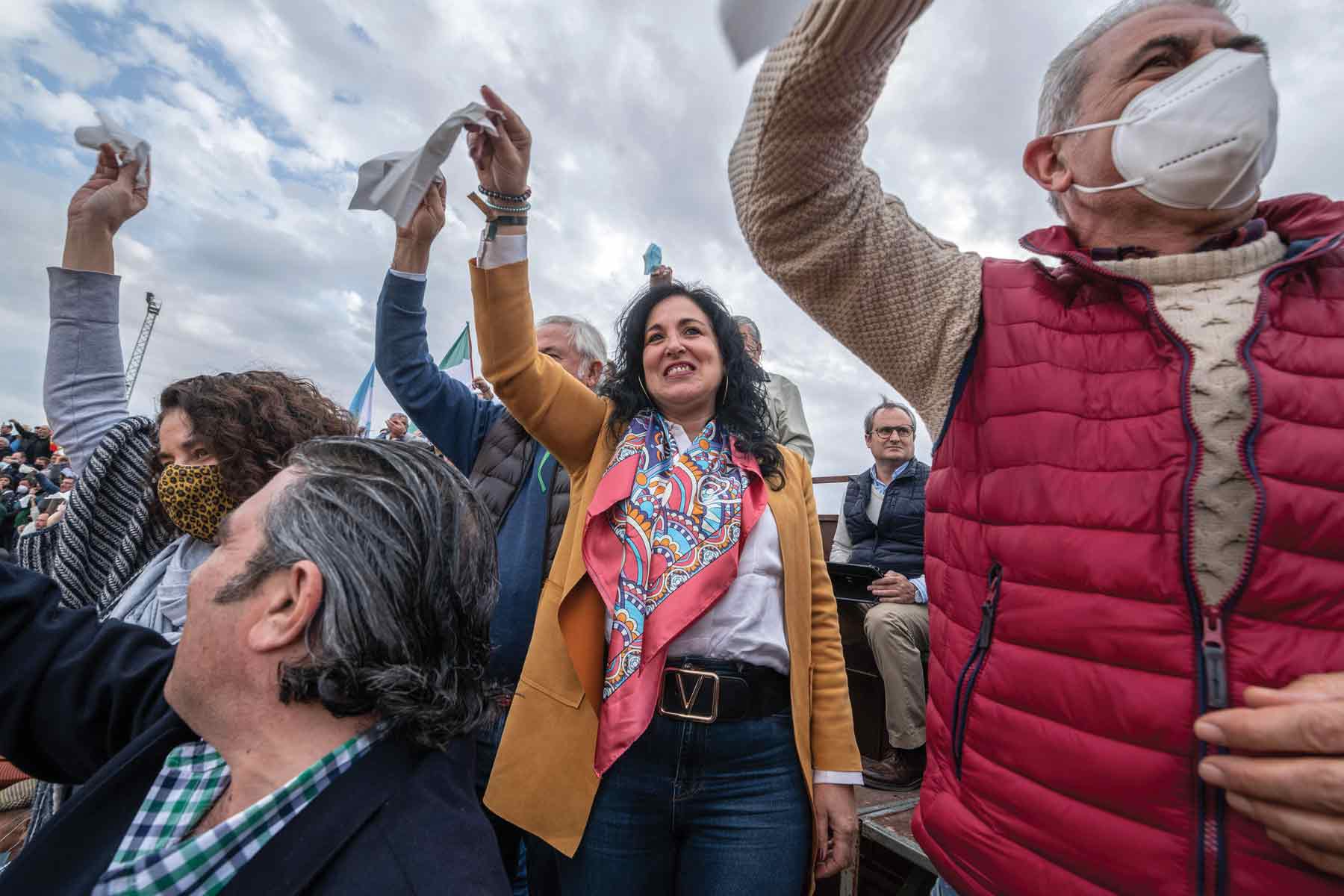 Spectators wave white handkerchiefs to celebrate the death of a bull in Sanlucar la Mayor, Spain.
Spectators wave white handkerchiefs to celebrate the death of a bull in Sanlucar la Mayor, Spain.
Involved farms don’t exclusively raise cattle, either. José Enrique Zaldívar Laguía, president of the Spanish Association of Veterinarians Against Bullfighting (Avatma), concedes that most farms receiving CAP support also keep other animals, like pigs and sheep, and cultivate various agricultural products. Such farmers would be eligible for the same EU subsidies regardless of whether they raise bulls for fighting, he says.
However, the funds do help support bullfighting. Selling or renting a bull for popular festivals does not draw any profit for farmers. With CAP money, farmers who raise bulls for fighting can cover costs, Zaldívar Laguía explains. “Without that income, it is very likely that some would get rid of the bulls. In fact, some have already done so. They have stopped raising them or they have sold the farms on which they did so to other businesses interested in doing so,” he says. Hence, cutting funding for these farms could help put an end to bullfighting, Zaldívar Laguía argues.
While the controversial tradition seems to be losing advocates in France and Portugal, the enthusiasm for bullfighting remains robust in its country of origin, Spain. In 2022, 1,546 bullfighting events were held – an increase of eight and a half per cent compared to 2019, according to the Spanish Ministry of Culture.
Maite van Gerwen, director of CAS International, a Netherlands-based anti-bullfighting NGO, argues that it is unfair that all EU citizens pay for this support with their taxes. Instead of securing food production in line with the Green Deal, CAP funds are being “misused to facilitate animal suffering for the pleasure of a small group of people in some member states,” she argues. For van Gerwen, bullfighting is equivalent to “torturing an animal to death only for the pleasure of people.”
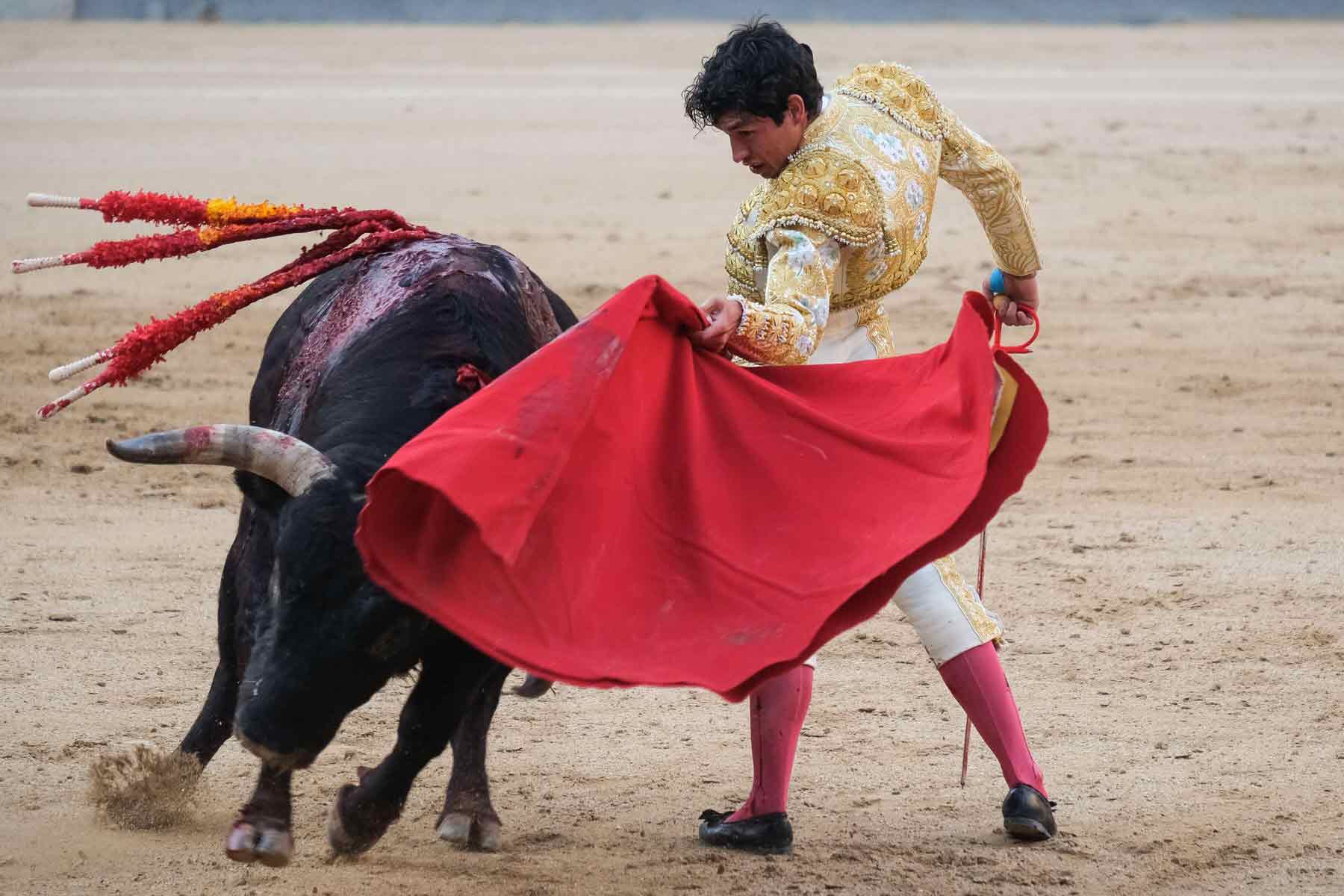 Bullfighter Isaac Fonseca during the bullfight of the feria de otono in the Plaza de las Ventas de Madrid in October 2023
Bullfighter Isaac Fonseca during the bullfight of the feria de otono in the Plaza de las Ventas de Madrid in October 2023
There have been attempts to change the rules: in autumn 2020, for instance, the European Parliament accepted an amendment to the CAP that foresaw restricting support for farms that bred bullfighting livestock. But the attempt was ultimately unsuccessful; it failed to gain traction with the European Council and the Commission. “Spain, Portugal, and France could continue to produce bulls for fighting, but they at least would not be receiving public money to allow this pocket of oxygen [for] the industry,” says Portuguese MEP Francisco Guerreiro (Greens/EFA), a key proponent of the 2020 amendment.
Growing up in Portugal, Guerreiro never went to a bullfight because he believes the practice promotes unnecessary violence. “Society is changing,” he says. “I think this will be a question of time before it ends.”
Bañuelos, however, defends the tradition. “Bullfighting is a cultural activity whose spectacle is complex and not easy to understand, as it is inextricably linked to the culture of the country,” he counters. “Opinions should not be formed according to ideological paradigms and in isolation from the popular culture that accompanies it.”
You are born a bullfighter, and you die a bullfighter
For her part, bullfighter Cabas, who enrolled at a bullfighting school at the age of five and is now studying to become a veterinarian, adds: “It is the only animal for human consumption that can be pardoned.”
When it comes to the tradition of bullfighting, the Commission does not have the legal authority to intervene in Member States, according to Gill. The spokesperson refers to Article 13 of the Treaty on the Functioning of the European Union, which states that while EU and Member States are required to “take full account of the welfare needs of animals as sentient beings,” they also “shall take into account the laws, regulations and practices of the Member States, in particular as regards religious rites, cultural traditions and regional heritage."
Meanwhile, Cabas is preparing for her next appearance in the arena. For the young woman, being a bullfighter is more than a profession: it is a lifestyle. “You are born a bullfighter, and you die a bullfighter,” she says.
Lê o artigo de opinião aqui

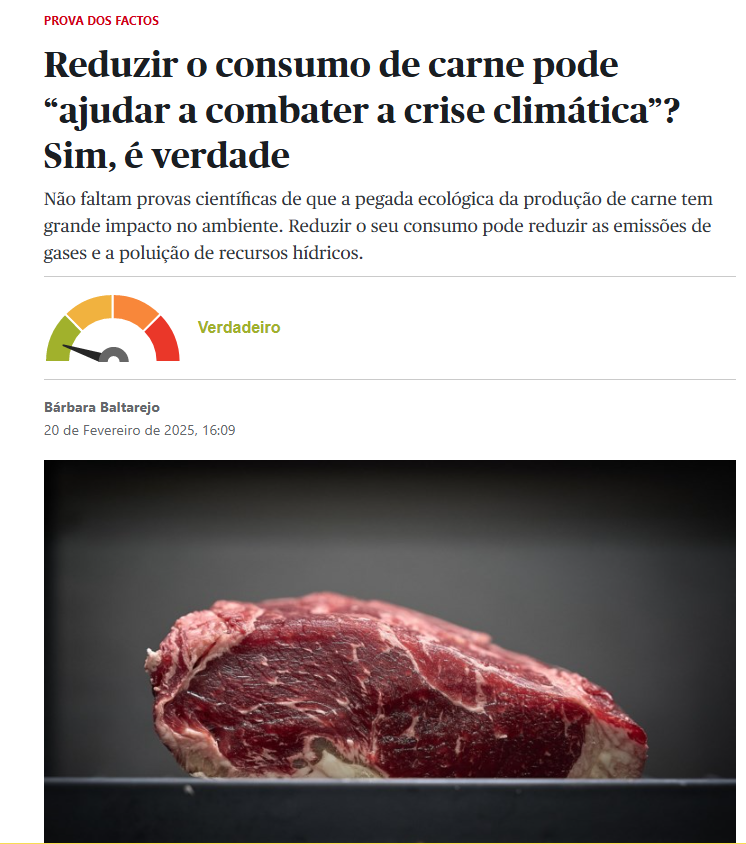

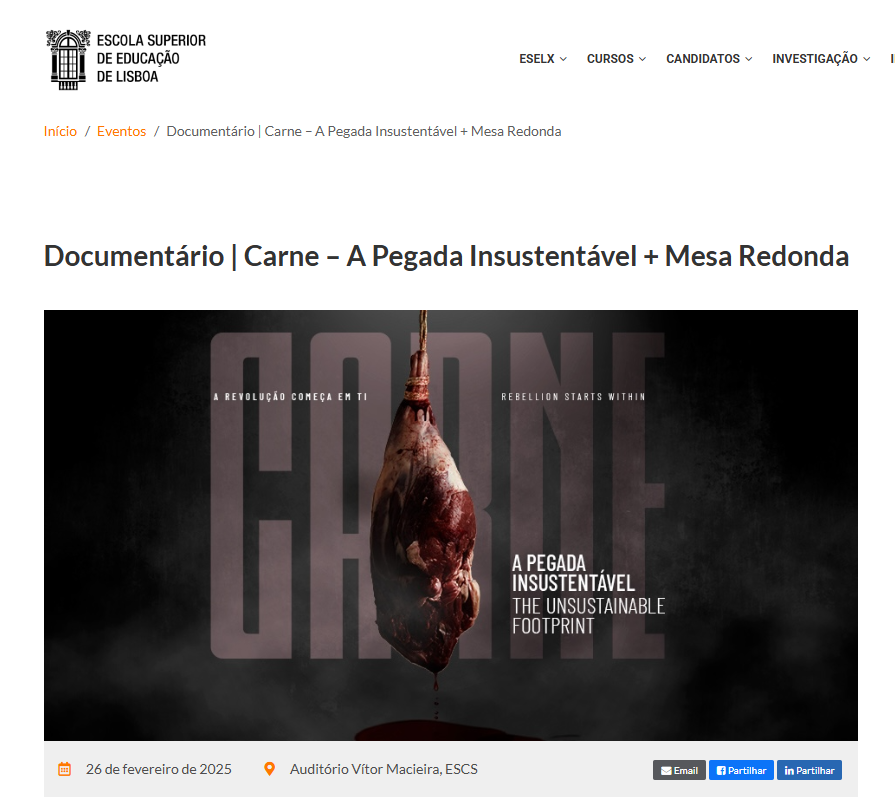
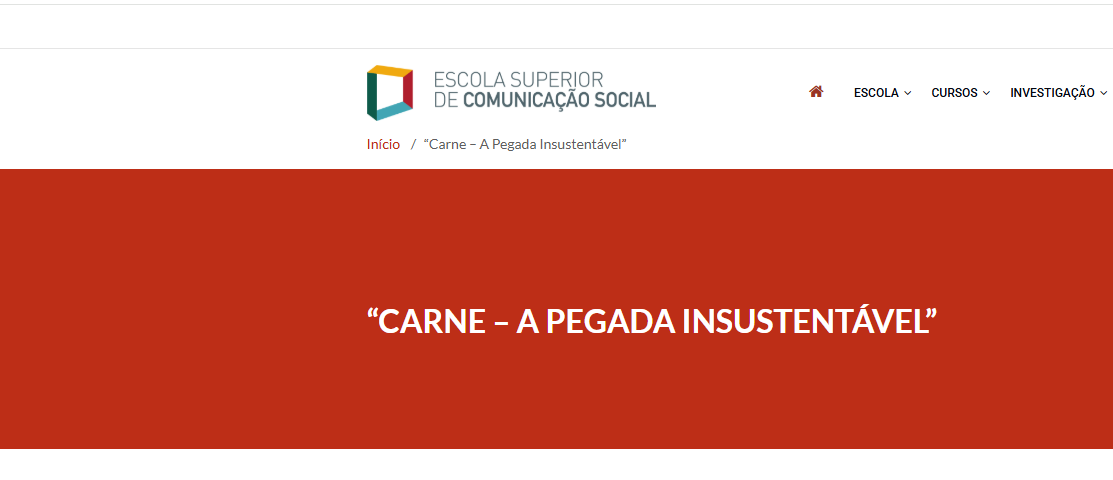






Público: 'Prova dos factos'
Quinta-feira, 20 de Fevereiro de 2025
LER MAIS